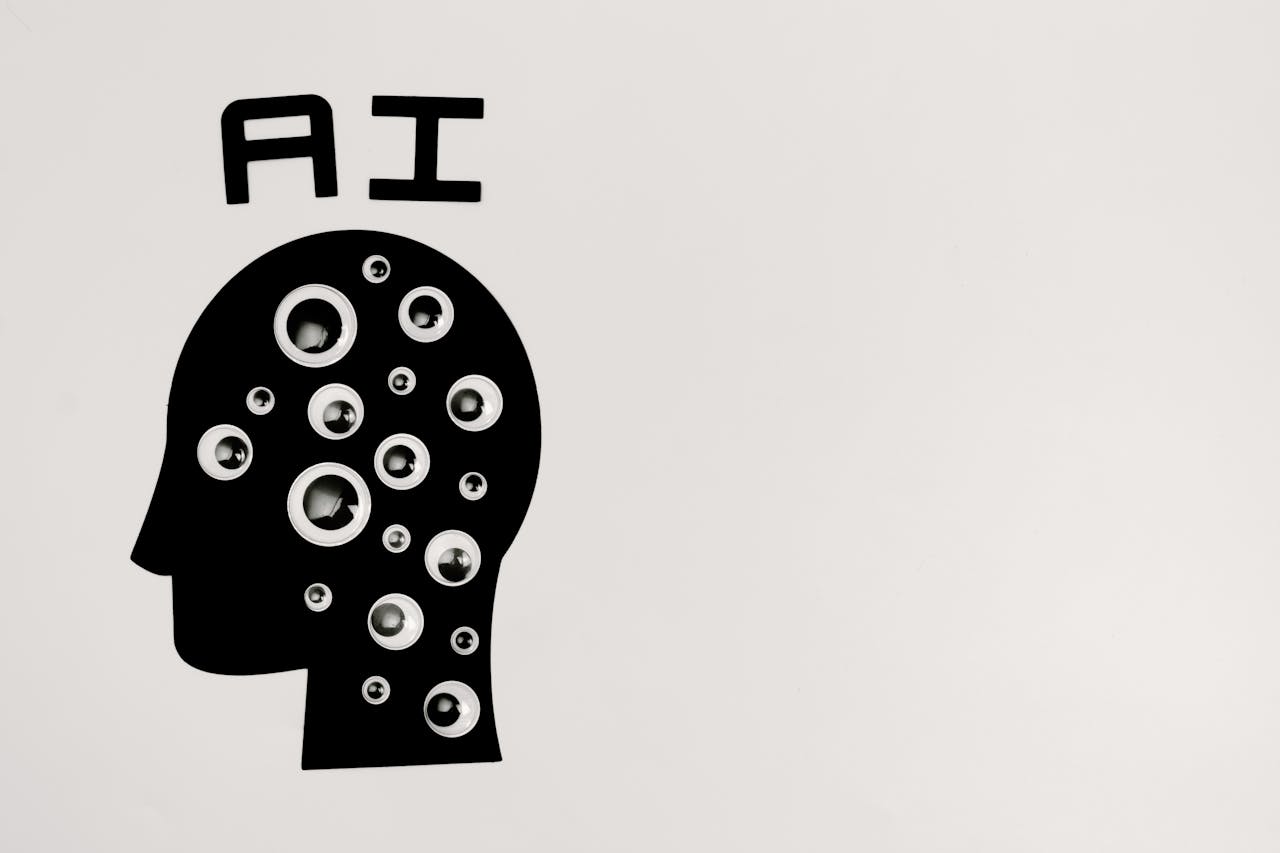AI and copyright: Can your business get sued for AI-generated content?
Who owns that content? And more importantly, can your business get into legal trouble for using it?
In just two years since its launch, we’re so far deep into the AI age that it’s difficult to remember a time when late-night sessions and coffee were the only forces powering your content strategy. Your new smart assistant, whatever platform you prefer, is fast, ingenious, and, let’s be honest, a bit addictive.
When you can produce a week’s worth of content in less time than it takes to schedule a team meeting, no one can blame you for falling head over heels in love with this new tech.
But here’s the thing most of us aren’t talking about enough: Who owns that content? And more importantly, can your business get into legal trouble for using it?
Today, we’re here to clear things up and answer these questions. We’re going to walk you through what the current laws say (or don’t say) about AI-generated content, where the real risks lie, and what steps you can take to protect yourself and your business.
Whether you’re a solo content creator, a startup founder, or part of a larger marketing team, this matters. So stay tuned until the end.

Source: Pexels
Quick review of the basics
Before we get into the nitty-gritty of things, let’s review two basic and important concepts: how AI platforms work and what happens to the work they produce.
How does AI work?
Think of AI as a blender. Inside, you have billions of web pages, books, photos, and more, all scraped from the internet. Tools like ChatGPT or MidJourney take this giant digital smoothie and whip up something new based on your request.
But here’s where things get sticky. That smoothie might include copyrighted “ingredients”, such as articles, images, or even song lyrics that belong to someone else. This is part of what developers call the data used to train AI platforms (which is still a big, nebulous area from a legal standpoint).
So, when AI creates your content, it remixes what it’s been trained on. Most of the time, the result is unique enough to pass muster. But sometimes, AI can spit out something that’s a little too close to the original.
Say you run a customized apparel business. You finally found a reliable supplier for blank t-shirts and want to ramp up production. To speed things up, you use AI to come up with new designs. What do you think would happen if one of your designs got too close to Marvel’s or DC’s? You guessed it; you’ll have a lawsuit on your hands.
Who owns the content?
You ask ChatGPT to write a blog post. Or you ask an AI image generator to make a banner for your homepage. You hit "Download," use it in your business, and… voilà! It’s yours, right?
Well… sort of. And also, maybe not.
Chris Aubeeluck, the Head of Sales and Marketing at Osbornes Law, told us how things are: “Copyright law, as it currently stands, wasn’t built with AI in mind. In most countries, copyright protection is only granted to works created by humans. So, if an AI writes something entirely on its own, with no human input, it might not be legally protected by copyright at all.”
Most AI platforms say you own the outputs you generate. But they also add disclaimers like “subject to applicable laws” or “you’re responsible for your own use.”
To solve this conundrum, it’s important to add your own spin to generated content. For instance, there’s no problem in using AI to optimize your marketing strategy, but make sure your own ideas and vision are involved.
If you copy and paste raw AI content into your website, it’s a bit like decorating your storefront with public street art: looks great, but it’s hard to say if it’s truly yours.
When can AI content cause legal troubles
AI is still the Wild West when it comes to legal stuff. Courts are only just starting to deal with these questions, and lawmakers are scrambling to catch up. But in the meantime, there are a few real-world risks you should know about.
1. Copyright infringement
Besides direct infringement, where the output is way too close to the copyrighted original, you also have to consider the issue of derivative works. This is when AI generates something that’s clearly inspired by a protected source.
Let’s say you are putting together an ad campaign for a debt relief company. You’re using ChatGPT to create a series of educational and informational shorts to promote the benefits of this company.
If the structure of the content or its wording sounds like it’s directly inspired by one of the competitors, then you might be in hot water. Not to mention that it’s not good for anyone’s image (yours or that of your client).
2. Trademark violations
As AI tools become more accessible for creating content, they’re also raising new questions about copyright and branding—especially when it comes to designing custom t-shirts.
Jesse Hanson, Content Manager at Online Solitaire & World of Card Games, adds, “AI doesn’t always know when it’s crossing the line into brand territory. Things get trickier when your prompts mention brand names, like “Generate a Nike-style slogan” or “Integrate an image of a Coca-Cola bottle in this image.””
Even if your intent was innocent, using trademarked words, logos, or brand likenesses without permission in your business materials could be problematic.
3. Defamation, misinformation, and other legal headaches
Let’s say you generate a blog post or ad copy about a public figure or a sensitive topic. If the AI invents a fact that’s false or damaging (yes, it does this sometimes), you’re responsible for publishing it.
Even if you didn’t mean to publish misleading or defamatory content, the liability usually rests with the person or business who clicks “publish,” not the chatbot that wrote it.
Terms of service
When was the last time you actually read the terms of service before clicking “Accept”? Don’t worry, you’re not alone. Most of us skim past those legal scrolls as fast as possible.
But when it comes to AI tools, we should pay more attention to ToS (Terms of Service). We already saw that ownership of the generated content is usually conditional and depends on how you use the tool.
But there’s more. Some platforms allow full commercial use (meaning you can use the content for your business), while others may have restrictions, especially if you're on a free plan or using the tool at a large scale.
A few things ToS usually say you can’t do:
- Use the platform to create content that’s illegal or misleading.
- Generate outputs that resemble real people, companies, or copyrighted material.
- Use the tool to automate spammy content across multiple websites.
Even if the AI output looks unique, using it in a way that violates the terms could land you in trouble.
So, here are a few things to watch out for next time you’re scanning the ToS of an AI platform:
- Can you use the content commercially?
- Do you own what the AI generates?
- Are your prompts or outputs used to train the model later?
- Are you liable if something goes wrong?
How to use AI content safely
At this point, you might be thinking, “Okay, so should I just stop using AI altogether?”
We don’t recommend it. When your competition uses a social media post generator to speed up their campaigns, you’re going to be left in the dust if you go back to the old ways. The secret is to be smart about how you create and use AI content.
Your goal is to avoid the legal gray areas while confidently using AI to build, market, and grow your business. Whether you're promoting financial services or health products, it’s important to ensure the content meets industry standards and doesn’t inadvertently misuse copyrighted material. So, here are a few steps to keep in mind:
Always review and edit AI-generated content
AI is a great helper, but it’s not always accurate or original. Before you publish anything, fact-check the claims, make sure the content matches your voice, and make it yours as much as possible.
You should also run a plagiarism check (tools like Copyscape or Grammarly can help) to avoid any legal issues later on.
Be extra cautious with AI-generated images
Images come with more baggage than text. AI art generators can borrow heavily from training data, which is how you might end up with an image that’s too Van Gogh-inspired.
To play it safe:
- Use AI tools that offer clear commercial licenses.
- Avoid prompts that reference celebrities, trademarks, or copyrighted characters.
- When in doubt, opt for stock images or custom designs
And yes, even AI-generated cats can cause trouble if they look too much like Disney sidekicks.
Keep records of what you created (and how)
“In personal injury law, success often comes down to the strength of your records—who did what, when, and how. The same logic applies to AI-generated content. If you're using tools like ChatGPT in your business, keeping clear records of your prompts, edits, and final outputs is your best defense. It shows ownership, intent, and that you've added your own human touch.”— Kathryn MacDonell, CEO, Trilby Misso Lawyers.
It might help to implement a new company policy where you ask anyone working with AI tools to save their prompts and responses, make a note of any edits, and keep archived versions of the content.
Talk to a real lawyer (Yes, a human one)
The legal world may still be trailing behind AI technology, but it’s still a good idea to consult with a lawyer who understands your niche. They can provide extra insight, make you aware of any compliance issues, and overall point you in the right direction.
Wrap up
AI is an incredible tool, and yes, you can absolutely use it to power your business forward. Just remember: with great content comes great responsibility.
Avoid overly relying on your new extremely smart assistant and always put your print on the content it creates. You still want your unique voice or that of your brand out there. So, stay mindful of legal boundaries and keep exploring, creating, and scaling!
FAQ
1. Can I get sued for using AI-generated content in my business?
It’s possible, but unlikely if you’re careful. AI-generated content could infringe copyright if it closely mimics someone else’s protected work, so always review AI outputs for originality and customize them with your voice.
2. How can I prove that I edited or customized AI-generated content?
Keep records! Save your prompts, document your edits, and archive the final version. This paper trail can help establish originality and defend your position if issues arise.
3. How do I know if AI output is copyrighted?
Use plagiarism checkers like Copyscape for text or reverse image searches for visuals to spot red flags. Adding your unique spin also helps make the content yours and avoid any suspicions.
4. What should I do if I get a copyright claim for AI-generated content?
Don’t panic! First, review the claim to see if it’s legit. If it’s serious, consult a lawyer to assess your options. Acting quickly and documenting your process can save you a headache.

